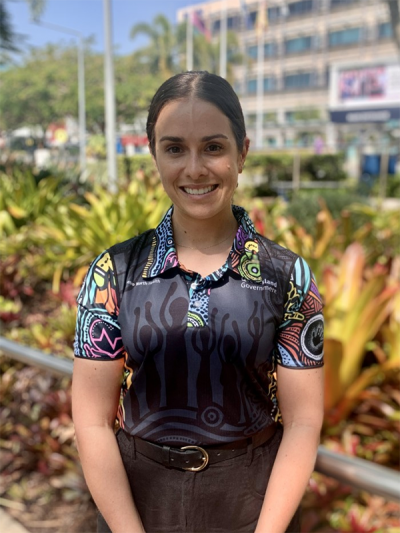New medical pathway for Aboriginal and Torres Strait Islander women on track to save lives
A new gynaecological and maternity healthcare model for Aboriginal and Torres Strait Islander women is seeing a 40 per cent decrease in missed attendance at medical appointments and aims to improve long-term health outcomes in a culturally safe environment.
The Women’s Business Shared Pathway was developed to deliver culturally appropriate patient-centred care for Aboriginal and Torres Strait Islander women, support care closer to home and remove barriers to healthcare appointment attendance related to women’s business, specifically barriers to attending gynaecology and maternity appointments.
 The model is a collaboration between Metro North Health and the Institute for Urban Indigenous Health (IUIH).
The model is a collaboration between Metro North Health and the Institute for Urban Indigenous Health (IUIH).
Current data identifies that on average Aboriginal and Torres Strait Islander women have a life expectancy almost ten years shorter than the general Australian female population and are four times more likely to die from cervical cancer.
This is due to lack of early detection of health concerns fuelled by poor engagement with health services, limited access to transport, perceived lack of cultural safety, cost, and negative past experiences for these women.
The Women’s Business Shared Pathway provides Aboriginal and Torres Strait Islander women with a range of supports, including a partnership approach with community organisations who they know and trust, a ‘one-stop shop’ in the community for women’s related healthcare needs, transport to and from appointments, ongoing support from staff of Aboriginal and Torres Strait Islander descent, continuity of care across health sectors and multiple referral pathways. Aboriginal and Torres Strait Islander women can also choose between three different clinic locations to receive care.
Metro North Aboriginal and Torres Strait Islander Leadership Team Executive Director Sherry Holzapfel said that there are a range of barriers to accessing medical treatment for women, particularly in relation to gynaecological and maternity appointments.
“Culturally, there can be a lot of stigma around seeking care for women’s business in the Aboriginal and Torres Strait Islander communities,” she said.
“We identified an urgent need to remove the barries to care for these women and provide them with support from someone of Aboriginal and Torres Strait Islander decent who understands their culture and concerns.”
Royal Brisbane and Women’s Hospital physiotherapist and Women’s Business Shared Pathway Project Officer Edwina Powe, a Palawa woman, said that both the gynaecology and maternity pathways have seen great success since they commenced in December 2020 and April 2021 respectively.
“Across both gynaecology and maternity patients, we have seen a 21 per cent increase in appointment attendance,” she said.
“The feedback we’ve received so far from our patients has been overwhelmingly positive, with one patient recently stating that women in her family may have lived much longer if a pathway of this kind was available when they had their illnesses.”
RBWH patient Marlene Wilson says the support provided to her over two months from the Women’s Business Pathway team has made a huge difference in her healthcare journey.
“Receiving healthcare can be a very nerve-racking experience for Aboriginal and Torres Strait Islander people like myself,” she said.
“The Women’s Business Shared Pathway team have gone out of their way to show thoughtfulness and kindness to me. They check in with me all the time to see how I am going and make arrangements so my appointments are easier to get to, which makes the world of difference.
“I feel like I can talk to them about anything I’m feeling or experiencing now because they’ve shown an interest in me. That kind of support is so lacking in our world today.
“It makes me want to keep going back for my appointments.
“I’ve been telling all my friends and family about the pathway. When you experience something so positive and supportive, you can’t help but talk about it.”
QUALITY OF CARE
TABLE OF CONTENTS
